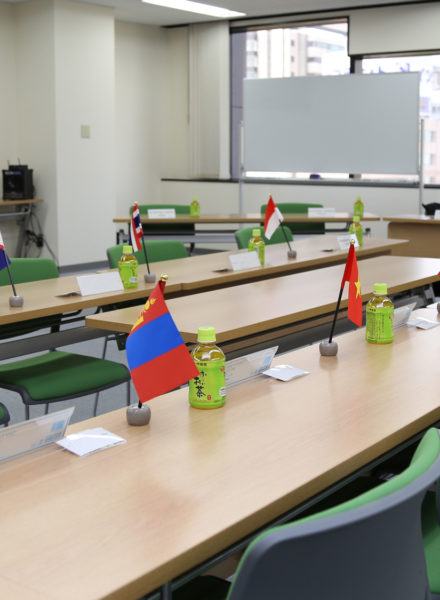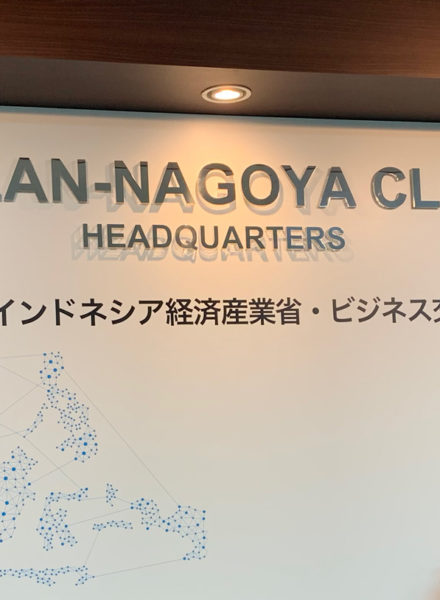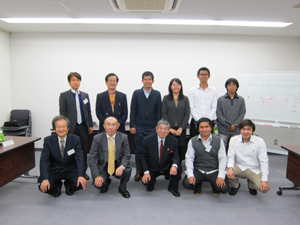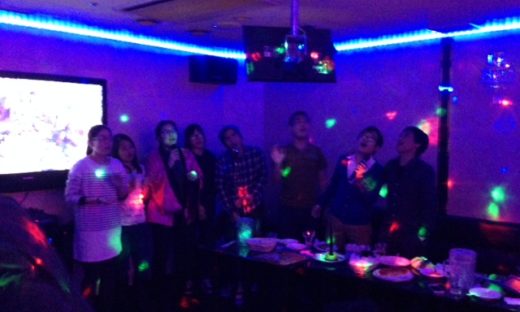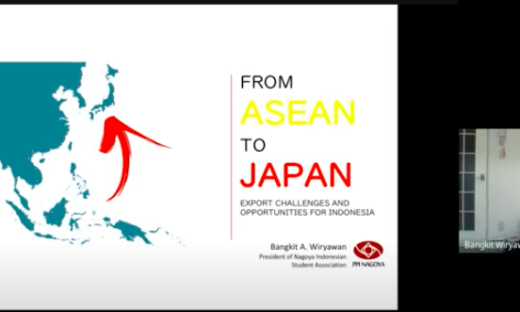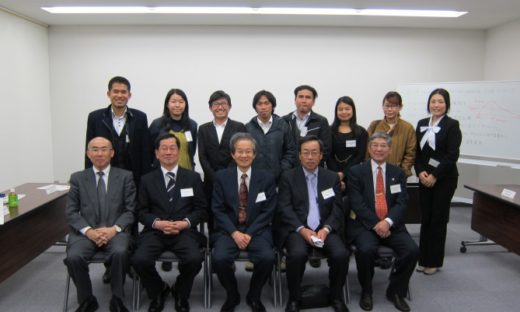第3回ミーティング報告書 2014年10月24日 The 3rd Meeting Report
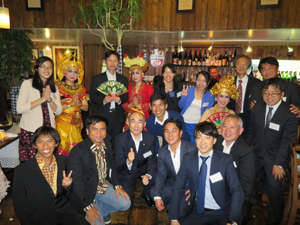
インドネシアの紹介
第三回は、インドネシアの留学生の皆さんに「母国インドネシア」を語っていただきました。レクチャーはINDRA KESUMA NASUTIONさん、MARDIANSYAH MARDISさん、Veronica Theresia Pranowoさんの3名にご担当いただきました。また本日はインドネシア進出を考えておられる企業家の方も3名お招きいたしました。
■ インドネシア共和国
17,500 の島から構成される世界一の諸島の国である。世界第4位の2億4千万人を超える人口を有し、最もイスラム教徒が多い。自然災害、汚職、分離主義、民主化、急速な経済成長など波乱に満ちた歴史であった。
島々には、多くの民族、言語、宗教が存在している。ジャワ島の人々は政治的に最も有力で、最も大きな民族である。単一国家として、共通言語、イスラム教徒の人口、植民地の歴史を基本として主体性を維持してきた。国のモットーは、多様性の中での団結である。
■ 歴史
国家として、王国時代から政府時代まで長い歴史を有する。この歴史が国を豊かにし、多様性を生んだ。
1500以前 : 多数の王国時代とイスラム教徒の流入
1500 to 1670 : 偉大な国王と仲介貿易
1670 to 1800 : 宮廷の陰謀
1800 to 1830 : 混乱と抵抗
1830 to 1910 : 帝国主義と近代化
1910 to 1940 : 新たな民族主義
1940 to 1945 : 第2次世界大戦
1945 to 1950 : 独立戦争
1950 to 1965 : スカルノ時代
1965 to 1998 : スハルト時代
1998 以降 : 改革の時代
■ 経済
過去5年間、インドネシア経済は世界で最も安定した成長を実現した。 下記の表は、IMFによるインドネシアの経済予測である。
(単位 : USD billion).
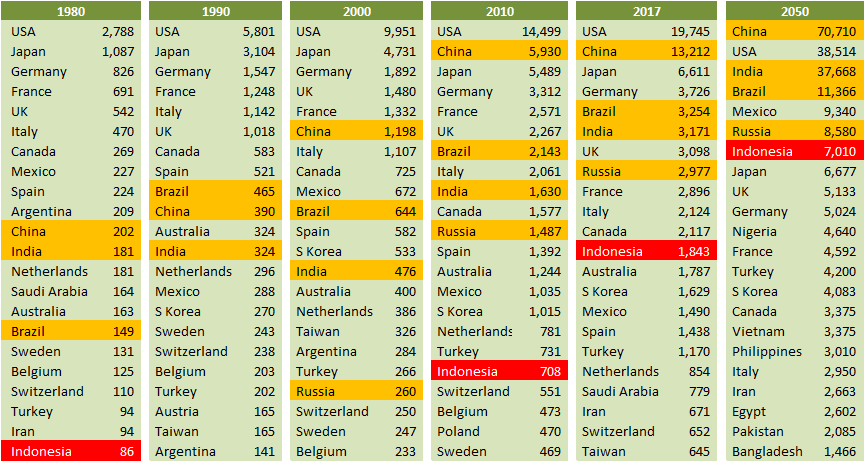
レクチャーにありましたように、多数の島々、多数の民族で構成されているインドネシア。またイスラム教を中心とした国インドネシア。イスラム教と民主主義は融合が難しいとの指摘もありますが、インドネシアは両立をさせている国です。グローバリゼーション時代では多様な文化、多様な民族が相互理解を深めていかなければなりません。そうした意味ではインドネシアはグローバリゼーションのお手本となる国ではないでしょうか。
また、レクチャーを担当していただいた3人の目は輝いていました。また上表はマッキンゼーの予測ですが、2050年にはGDPにおいて人口が減少する日本を追い抜くといわれています。報告者の一人MARDISさんが、「これは一つの予測です」と日本を追い抜くことを遠慮がちに表現されたことがとても印象的でした。どこまでも彼らは輝かしい未来を見つめているようでした。
インドネシア進出を考えておられる企業の皆さんからはインドネシアの賃金、物価、嗜好性に関する具体的な質問があがりました。逆にインドネシア留学生の皆さんからアイデアが提供され、意義ある機会になったようです。
一時帰国から日本に戻ったばかりのINDRAさんから大学の先輩にとULOSといわれる北スマトラの伝統更紗をお土産にいただきました。品格のある輝きがあり、長い歴史を感じさせます。
レクチャー終了後、今日はインドネシア料理店にBLAN BALIに足を運びました。インドネシア料理は日本人の味覚に合うものが多いように感じられました。その日はたまたまバリの民族舞踊のショーがありました。実際に間近でみるバリの踊りは美しいものでした。奏でる音楽も神々を感じさせるものでした。また、途中からはレストランに来たお客の皆さんも踊りに参加し、あたかも、居合わせた人はみな友人のような輪になっていました。
Introducing Indonesia
In the 3rd meeting, we invited Indonesian international students to talk about their “home country Indonesia”. The lecture was given by Indra Kesuma Nasution, Mardiansyah Mardis, and Veronica Theresia Pranowo. We also invited three entrepreneurs who are planning to expand their business in Indonesia.
■ Republic of Indonesia
It is the country of the world’s largest islands, consisting of 17,500 islands with a population of over 240 million, the fourth largest in the world, and it has the largest number of Muslims. There was a turbulent history of Indonesia including natural disasters, corruption, separatism, democratization, and rapid economic growth.
There are many ethnic groups, languages and religions on the islands. The people of Java are the most politically influential and the largest people. As a unitary state, it has maintained the independence on the basis of a common language, Muslim population, and colonial history. The national motto is unity in diversity.
■ History
As a nation, it has a long history from the kingdom era to the government era. This history has enriched the country and created diversity.
Prior to 1500: Numerous Kingdom Ages and Influx of Muslims
1500 to 1670: Great King and Mediation Trade
1670 to 1800: Court Conspiracy
1800 to 1830: Confusion and Resistance
1830 to 1910: Imperialism and Modernization
1910 to 1940: New Nationalism
1940 to 1945: World War II
1945 to 1950: War of Independence
1950 to 1965: Sukarno era
1965 to 1998: Suharto era
1998 and later: Age of reform
■ Economy
Over the last five years, Indonesia’s economy has achieved the most stable growth in the world. The table below is the IMF’s economic forecast for Indonesia.
(Unit: USD billion).
As mentioned in the lecture, Indonesia is composed of many islands and many ethnic groups. In addition, Indonesia is a country centered on Islam. It has been pointed out that Islam and democracy are difficult to integrate, but Indonesia is a country that is compatible. In the age of globalization, diverse cultures and diverse ethnic groups must deepen mutual understanding. In that sense, Indonesia may be a model country for globalization.
In addition, the above table is McKinsey’s forecast, it showed that by 2050, Indonesia is predicted to overtake Japan, which population is declining in GDP. Indonesia seems to be looking at a bright future. Companies considering expanding into Indonesia asked specific questions about Indonesian wages, prices, and tastes. Indonesia students were enthusiastic to explain about a high opportunity for Japanese Companies to expand their business in Indonesia.
Indra, who has just returned to Japan from Indonesia, gave a souvenir to a senior at the university and a traditional chintz from North Sumatra called ULOS. It has a dignified brilliance and makes you feel a long history.
After the lecture, we went to Bulan Bali, an Indonesian restaurant. Indonesian food suits the taste of Japanese people. There was a performance of a beautiful Balinese folk dance show on that day. The traditional music made us feeling good. In addition, the customers who came to the restaurant also participated in the dance and all of them made a circle formation. It was so much fun and unforgettable memory.
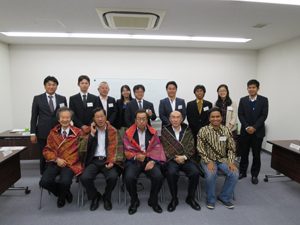
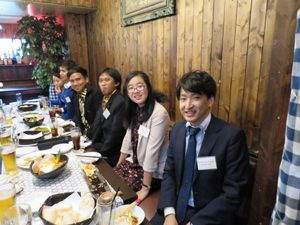

参加者:
<日本人メンバー>
小里氏、西氏、大黒氏、鈴木氏、松久氏、荻巣先生(アセアン・名古屋クラブのコメンテーター)
畑佐社長、北田取締役、後藤専務、牧野、加藤、田中
<留学生メンバー>
Mr.Pak Chanlino,Ms.VONG Rylida,Mr.INDRAKESUMA NASUTIO、Mr.MARDIANSYAH MARDIS、Mr.MARDIANSYAH MARDIS、Veronica Theresia Pranowo、荻巣先生(名古屋大学メンテーター)
